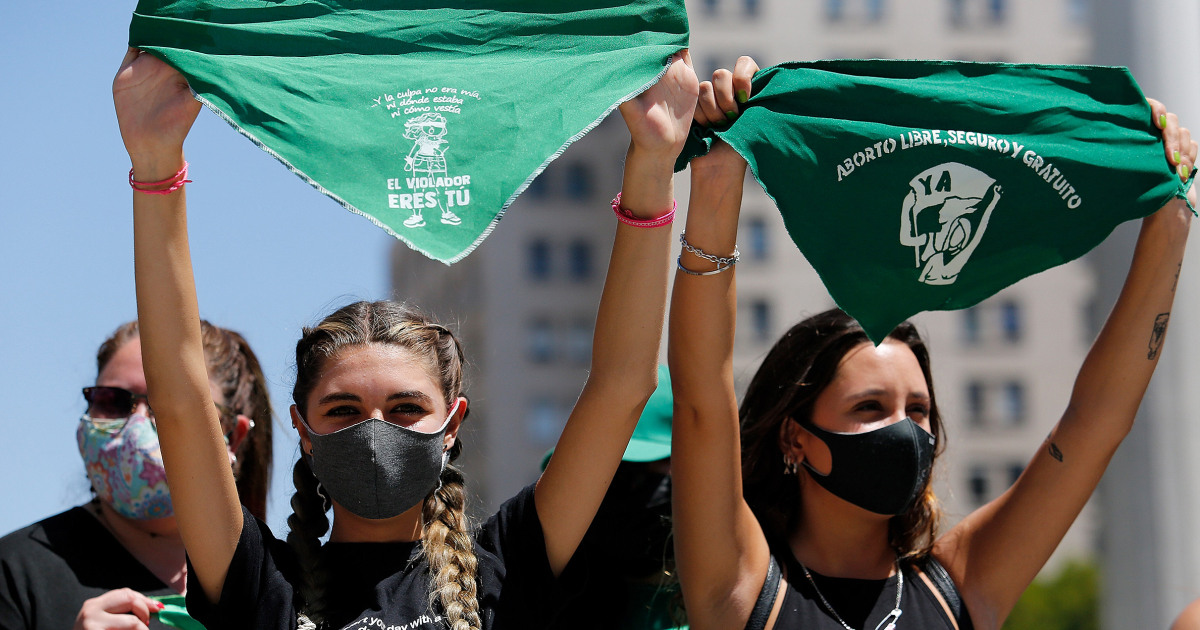Some people who seek or obtain abortions can face prison terms in more than 120 countries, according to an analysis published Monday which sheds new light on international sanctions for the procedure.
More than 90 countries have maximum sentences of up to five years in prison for certain abortion seekers, while 25 have sentences of between five and 10 years, according to the research, which was based on a Database of the World Health Organization of abortion policies.
The authors describe their work, published in the BMJ Global Health journal, as a comprehensive global analysis of the criminalization of abortion.
«When [abortion] regulated through criminal law, there are consequences, which can include compounding the stigma associated with seeking or providing abortion services, creating a chilling effect,» said co-author Antonella Lavelanet, a medical officer with the Department of Sexual and Reproductive Health at the WHO Services and Research.
Lavelanet and his co-authors used data from the WHO Global Abortion Policy Database for study, although it does not follow a uniform definition of abortion. (The practice is generally defined as the termination of a pregnancy before fetal viability, at around 24 weeks.) The database also does not specify the gestational limits after which sanctions are imposed in different countries, so some may not apply until the end of the pregnancy.
In six countries – Kiribati, the Solomon Islands, Tuvalu, Barbados, Belize and Jamaica – some people who seek an abortion can face life in prison, according to the analysis.
Although most countries allow some level of access to abortion, 11 ban it entirely, Lavelanet said: Andorra, Congo, the Dominican Republic, El Salvador, Haiti, Madagascar, Malta, Nicaragua, Palau, the Philippines and Suriname.
The study also found that some people who seek an abortion can be fined in 48 countries, most of which impose fines in addition to prison sentences.
The analysis included data from 182 countries until October. It did not include the US, as abortion regulations differ from state to state following the Supreme Court’s decision to strike down the constitutional right to abortion.
Some US states that ban abortion, including Mississippi, Alabama and West Virginia — order jail time for providers of illegal abortions, according to FindLaw.com, an online legal database.
“As long as those criminal laws are on the books, it is very difficult for women to exercise their affirmative abortion rights and access essential health care,” said Rebecca Cook, professor emeritus at the University of Toronto Law School, whose research has focused on the decriminalization of abortion.
Abortion providers may also face prison time
In many countries, abortion providers and those who help them may be subject to harsher legal repercussions than those who seek an abortion, the new study shows.
Some abortion providers can face up to five years in prison in 126 countries and 10 years to life in 14 countries. They may also be fined or face professional sanctions, including termination of employment or closure of their practices, in dozens of countries.
Some laws also criminalize people only tangentially associated with abortion services: in the Philippines, for example, the parents of someone who aborts could be penalized.
Other countries impose alternative penalties for certain providers or seekers of abortions. Syria, Russia and the Ukraine, for example, demand various forms of labor as sanctions. Four countries, Mali, Algeria, Mauritania and Morocco, prohibit residence after an abortion.
Earlier this month, a Polish court sentenced a human rights activist of illegally providing abortion pills, sentencing her to eight months of community service, a type of sentence also imposed by at least four other countries.
But the WHO database does not track the extent to which legal sanctions are enforced, which is a limitation of the study, the authors noted.
Criminalization does not stop abortions, say experts
In 34 countries, the dissemination of information about abortion services is also criminalized in some circumstances, including when certain types of abortions may be legal. Germany abolished a law like this in June, Reuters reported.
“We want people to have access to quality abortion services, and that includes having information to access counseling and information,” Lavelanet said.
She added that some research suggests that anti-abortion laws don’t necessarily reduce or stop abortion.
«Restricting access to safe abortion hurts women: it leads to unsafe procedures, lack of access to information,» she said, noting that, in some circumstances, it «actually leads women and girls to unsafe procedures.»
Cook, a professor at the University of Toronto, said that criminalizing abortion also overlooked the fact that «abortion is really essential health care, particularly in cases where women are raped.» [or] adolescent incest».
“When criminalized, it builds up women as potential criminals,” she added.
WHO guidelines recommend decriminalizing abortion and remove any other medically unnecessary policies that create barriers to safe abortion.

